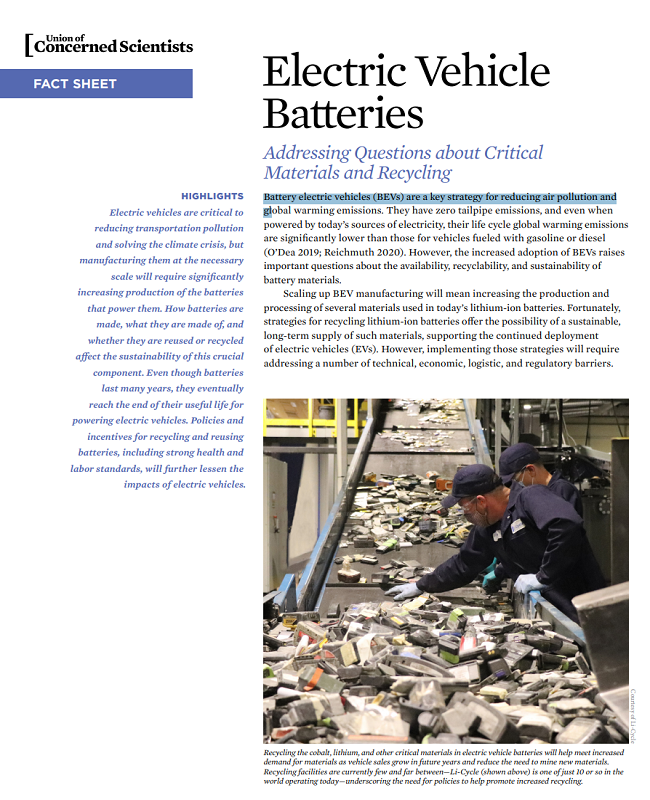Battery electric vehicles (BEVs) are a key strategy for reducing air pollution and global warming emissions. They have zero tailpipe emissions, and even when powered by today’s sources of electricity, their life cycle global warming emissions are significantly lower than those for vehicles fueled with gasoline or diesel. However, the increased adoption of BEVs raises important questions about the availability, recyclability, and sustainability of battery materials.
Scaling up BEV manufacturing will mean increasing the production and processing of several materials used in today’s lithium-ion batteries. Fortunately, strategies for recycling lithium-ion batteries offer the possibility of a sustainable, long-term supply of such materials, supporting the continued deployment of electric vehicles (EVs). However, implementing those strategies will require addressing a number of technical, economic, logistic, and regulatory barriers. This fact sheet explores these topics and more in the field of battery manufacturing and recycling.
Preview the report here:
 Loading...
Loading...
More About this Resource
Publisher: Union of Concerned Scientists
Date: February 11, 2021
Type: Fact Sheet
Tags: Batteries, Best Practices
Countries: International
States: None
